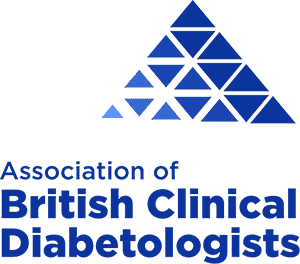This award recognises the impact of preventative initiatives in helping to reduce the growing prevalence of type 2 diabetes. However, it also hopes to recognise initiatives which have led to the earlier detection of both type 1 and type 2 diabetes, ensuring people receive the best care necessary as quickly as possible after developing diabetes.
Winner
The Ipswich Touch Test – screening for neuropathy at home
The Ipswich Hospital NHS Trust

The Ipswich Touch Test (IpTT) is a novel test for neuropathy that is simple, safe and easily taught. The test involves lightly and briefly (1-2 seconds) touching the tips of the first, third and fifth toes of both feet with the index finger to detect a loss in sensation, and can be performed by patients and relatives alike in the comfort of their own home. When used at home, the IpTT had a sensitivity of 78.3 per cent and specificity of 93.9 per cent. The likelihood that a positive test meant a person had neuropathy was 81.2 per cent, while the likelihood that a negative test meant someone didn’t have neuropathy was 92.8 per cent. With clearly written instructions, this is a simple test can be used by non-professionals to accurately assess for loss of protective sensation. In addition, the test also serves as an educational tool to teach patients and relatives about diabetes foot disease, with 96.8 per cent of respondents claiming their awareness levels increased.
Judges’ comments
“The initiative empowers patients and encourages them to take responsibility.”
“This is a really good, simple idea that is transferable worldwide.”
Highly commended
A new Acute Diabetic Foot pathway for Southend
Southend Hospital NHS Trust
The ‘Wound Management Team’ (WMT) at Southend Hospital NHS Trust was formed after a complex wound problem became further complicated by a delay in surgery. The team was formed by combining two specialist nurse groups supported by a vascular surgical consultant. This was closely followed by the formation of a dedicated Wound Management Unit (WMU), allowing for the creation of a new pathway for diabetes patients with serious foot problems. Since this pathway was created, the rate of lower limb amputations in patients with complex wound needs has been reduced by 50 per cent. This has been helped by a multi-professional approach to care, with dedicated beds and a ward based specialist team which has pathways working across and in conjunction with the PCT specialist services. Having these service improvements accepted into local constitution has allowed for continual improvements in service delivery and patient outcomes.
Commended
East Lancashire Eye Screening Programme – “The difference we made”
East Lancashire Hospitals Trust
The aim of the East Lancashire Diabetic Eye Service is to reduce the risk of sight loss among people with diabetes through the prompt identification and effective treatment of sight-threatening diabetic retinopathy. The programme employs highly trained retinal photographers, graders and clinicians from secondary and primary care, and uses latest digital technology to offer nationally compliant screening. Referrals are made electronically, and screening photographs are available at the point of treatment. From its inception in April 2006, with a patient cohort of 14,700 registered diabetics, the Team has expanded from 6 to 25 members of staff. The East Lancashire Diabetic Eye Screening Programme now covers a population of 553,000 registered GP patients across both East Lancashire and Blackburn with Darwen. As a result of this service, 1,796 at-risk patients are now receiving the care they need to protect their sight.
Improvement in Foot Examination and Documentation in Inpatients with Diabetes Following Introduction of Foot Stamp
Hampshire Hospitals NHS Trust
Following the National Diabetes inpatient audit 2010, which reported that only 22.6 per cent of patients admitted with diabetes had a documented foot review, Hampshire Hospitals NHS Trust initiated a project to ensure all inpatients with diabetes received a foot assessment, while those admitted via medical assessment unit (MAU) received a foot check within 4 hours. High risk patients would also be identified and monitored and pathways developed to ensure continual foot review after discharge. To help ensure these measures remained in place, a foot shaped stamp using fuchsia coloured ink was used to record findings on a patient’s notes. This method was well-received by junior doctors, with the stamp making it easy to identify when a foot check had taken place. As a result, the number of patients in the hospital with a documented foot examination improved to 60 per cent compared to 27.3 per cent in the previous year. The stamp is now used in A&E and surgical pre admission wards.
“Diabetesbible”, a novel and innovative online training and reference source for clinicians at the diabetes coal face
Norfolk & Norwich University Hospitals NHS Trust
The Diabetesbible is an online guide which provides ‘real-time’ support to health professionals of all grades in diagnosing and managing diabetes, and acts as a training tool for juniors seeking to develop their skills in this specialty. Not only does the tool benefit diabetes patients by improving diagnosis and management, it aids referral decision-making, potentially leading to significant cost savings. Diabetesbible prompts doctors to ask the right questions when considering any given diabetes diagnosis; it outlines the features to look for when examining the patient; and it helps doctors decide which investigations, from the available options, are worth doing for an individual case. The tool is cross-referenced by diagnosis, investigation and management, and includes an up-to-date list of protocols for performing common investigations. It is improving practice globally with over 3,000 health professionals visiting each month from all around the world and the audience continues to grow.














